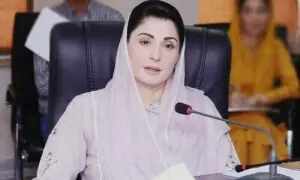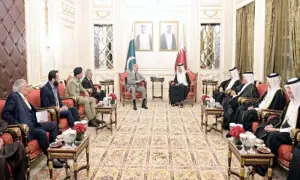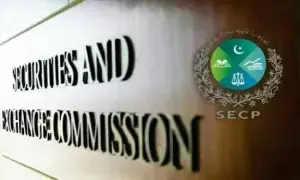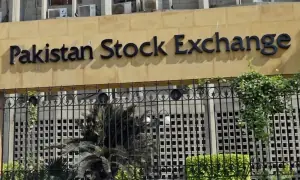Pakistan expects to clinch IMF deal with last minute changes
3 min readPakistan was hopeful of signing a staff-level agreement with the IMF, sources within the finance ministry told Aaj News on Monday, after the ruling alliance made last-minute changes to appease the international lender.
Virtual talks between Pakistan and IMF officials were ongoing, they said and added that the lender was expected to give the ‘Memorandum of Economic and Financial Policies’ to the country. This would lead to staff-level agreement and a board meeting.
The development comes against the backdrop of last-ditch steps, including Rs215 worth of additional taxes, lifting import duties, and raising the policy rate to 22%.
Earlier this month, Prime Minister Shehbaz Sharif expressed his hope for finalising the IMF deal this month as the country struggles to shore its foreign exchange reserves. He reiterated similar hope during his meeting with IMF Managing Director Kristalina Georgieva during the Paris summit.
The IMF’s $6.7 billion bailout package is due to expire Friday, with about $2.7 billion in loans yet to be given the green light. Under the $6.5 billion programme’s ninth review, Pakistan has been trying to secure $1.1 billion of funding that has been stalled since November.
The lender has asked the ruling alliance to ensure the completion of commitments by friendly countries – a demand that the government believes was the main key to reviving the stalled programme.
Pakistan needs $6 billion in new loans to bridge the financing gap. Saudi Arabia, the United Arab Emirates, and Qatar have not yet given these loans despite repeated requests by Pakistan. So far, only China has come to the country’s rescue with rollover of loans.
But this month the cash-strapped country leased part of Karachi port to the UAE for $220 million and plans are under way to outsource the operations of three major airports. Many believe such measures were taken to allow the inflow of dollars.
Sources said Pakistan has sought “relaxation” from the IMF on the external financing of $6 billion, prompting the lender to set a condition of imposing more taxes in return.
In addition to this, they added that the government has also prepared a strategy to cut the expenses of Rs85 billion. According to the MEFP, the proposal of remittances without declaring income up to one $100,000 was also withdrawn. The petroleum levy has also been increased from Rs50 to Rs60 per litre.
Pakistan will “be able to secure the program now,” said Ammar Habib Khan, chief risk officer at Karandaaz Pakistan, told Bloomberg on Monday. “Unless, of course, something else breaks.”
Revival of the loan programme would help the country tackle different challenges. Record inflation was making it harder for people to have a square meal and buy fuel.
The IMF loans are crucial as the South Asian nation faces about $23 billion of external debt payments for the fiscal year starting July, more than six times its foreign-exchange reserves. Pakistan has a $1.6 billion debt payment coming due in July, including a $1 billion Chinese deposit that is typically rolled over.
At the same time, the nation’s dollar stockpile has shrunk almost 60% in the past 12 months to $3.5 billion as of mid-June.
“Pakistan needs around $30 billion on an annual basis for three years to complete its loans and current account deficit for which we have to go to the IMF once again for a three-year programme after June,” former finance czar Hafeez Pasha told Aaj News in April. He backed national elections in June-July to enter the next International Monetary Fund prorgamme for economic stability.
(With input Web Desk)
For the latest news, follow us on Twitter @Aaj_Urdu. We are also on Facebook, Instagram and YouTube.


























Comments are closed on this story.